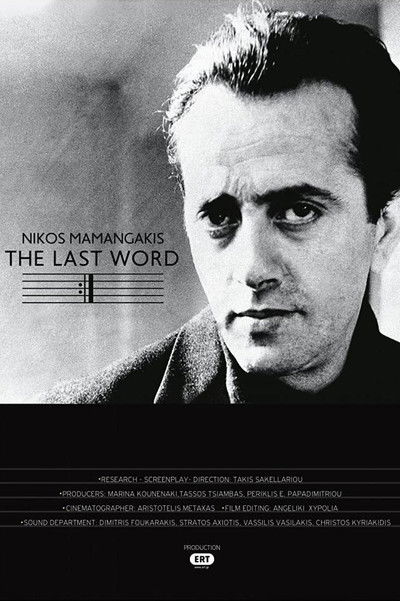
Nikos Mamangakis
Nikos Mamagakis (Rethymno, 3 March 1929 − Athens, 24 July 2013) was a Greek composer. He began his studies at the Athens Conservatory and then, from 1957, he studied at the Munich Conservatory alongside Carl Orff and Harald Gendsmer. His initial research concerned the renewal of timbre and structural and rhythmic relationships based on numerical proportions, both based on Western standards and with references to our folk music, mainly from his homeland. He was, moreover, related to the lyre player Andreas Rodinos, while his father also played the bulgari. A consequence of this search was the use in his works of various folk instruments (Cretan lyre, santouri, etc.) or, conversely, the use of their sound alone without the instruments themselves. Among his best-known works are: Anarchy for percussion and orchestra, Scenario for two improvised technocrites for instrumental ensemble, film and stage action, Performances for flute, voice and stage action, Music for four protagonists, Cassandra, Erotokritos, music for Aristophanes' Plutarch, Trittys, Tetraktys, Encomium to N. Skalkotas and recently, the modern opera Odyssey (based on the epic of the same name by Nikos Kazantzakis). He wrote music for Greek cinema, such as: The Teacher with the Blonde Hair, The Fairy and the Boy, The Lady and the Tramp (all by Dinos Dimopoulos), Loofah and Variation, Harpa-kolla, Life and State (by Nikos Perakis), The Avenue of Hate (by Nikos Foskolos) and many others. In April 1997, he presented his three-act opera "Opera of Shadows" (inspired by shadow theatre) to a libretto by Nasos Theophilos. He died of cancer on July 24, 2013.
KNOWN FOR
CREDITS
PHOTOS

